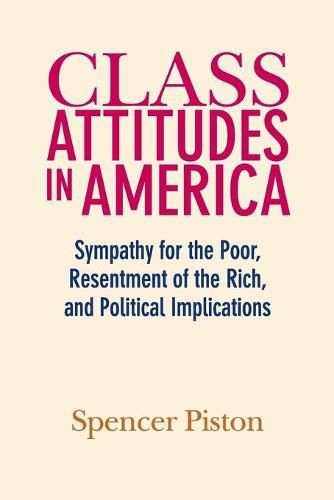Readings Newsletter
Become a Readings Member to make your shopping experience even easier.
Sign in or sign up for free!
You’re not far away from qualifying for FREE standard shipping within Australia
You’ve qualified for FREE standard shipping within Australia
The cart is loading…






This book explains a long-standing puzzle in American politics: why so many Americans support downwardly redistributive social welfare programs, when such support seems to fly in the face of standard conceptions of the American public as anti-government, individualistic, and racially prejudiced. Bringing class attitudes into the analysis, Spencer Piston demonstrates through rigorous empirical analysis that sympathy for the poor and resentment of the rich explain American support for downwardly redistributive programs - not only those that benefit the middle class, but also those that explicitly target the poor. The book captures an important and neglected component of citizen attitudes toward a host of major public policies and candidate evaluations. It also explains why government does so little to combat economic inequality; in key instances, political elites downplay class considerations, deactivating sympathy for the poor and resentment of the rich.
$9.00 standard shipping within Australia
FREE standard shipping within Australia for orders over $100.00
Express & International shipping calculated at checkout
This book explains a long-standing puzzle in American politics: why so many Americans support downwardly redistributive social welfare programs, when such support seems to fly in the face of standard conceptions of the American public as anti-government, individualistic, and racially prejudiced. Bringing class attitudes into the analysis, Spencer Piston demonstrates through rigorous empirical analysis that sympathy for the poor and resentment of the rich explain American support for downwardly redistributive programs - not only those that benefit the middle class, but also those that explicitly target the poor. The book captures an important and neglected component of citizen attitudes toward a host of major public policies and candidate evaluations. It also explains why government does so little to combat economic inequality; in key instances, political elites downplay class considerations, deactivating sympathy for the poor and resentment of the rich.